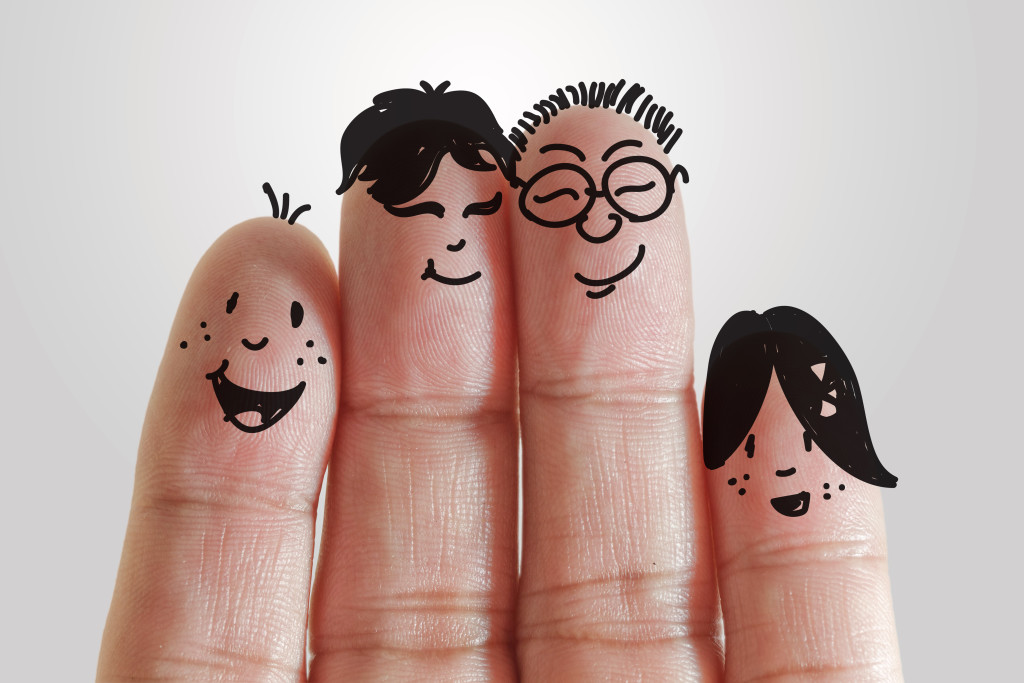The recent years have seen the cropping up of ‘laughing clubs’ and ‘laughter yoga’ across India. Passers by often stare and wonder as to why a group of people have gotten together to laugh, and some dismiss it as a completely pointless exercise.
Well, this article should change your perspective.
For a number of years now, the beneficial effects of laughter have become more and more popular. As children, we are often told that ‘laughter is the best medicine’ and that it takes ‘fewer muscles to laugh than it takes to frown’.
So is laughter the best medicine for your health and heart? Science seems to think so, and here we look at the evidence.
Did You Know? The Scientific Study of Laughter is called ‘Gelatology’.
Defining laughter
Yes, laughter actually has a definition.
Laughter has been defined as a “buoyant immersion in the presence of unanticipated glimpsings prompting harmonious integrity which surfaces anew through contemplative visioning” (Parsse, 1993).

As shocked as we were to read that definition, it clearly is quite scientific.
We prefer to think of laughter as a ‘heartfelt ho-ho ha-ha’!
The perception of laughter is different amongst age groups, and studies have shown that the younger generation prefer a ‘strong and loud’ laugh while the older population prefer a ‘gentle and kinder’ laugh.
Either way, laughter seems to have some positive effects on the heart and health, and here we shall look at them.
Effects of laughter on the heart and circulation
In a study performed by cardiologists at the University of Michigan in the United States, around 4 out of 10 people who suffered a heart attack did not laugh much prior to the event. Furthermore, laughter was also shown to help reduce the chances of developing a heart attack.
Mental stress can lead to the breakdown of a compound in the blood called nitric oxide. Nitric oxide is responsible for the relaxation of blood vessels in the body, and this in turn can improve circulation of blood to the heart and other vital structures. Low levels of nitric oxide has been linked to the development of atherosclerosis and heart disease.
By reducing mental stress, laughter improve circulation of blood around the body. It can increase the blood flow to the heart muscle by keeping the coronary arteries open and patent. By improving circulation, laughter can improve the health of your heart.
Laughter could reduce your blood pressure
There is some conflicting evidence of the effects of laughter on blood pressure. Some research has shown that laughter can increase the blood pressure in the short term, though this effect may not be persistent over a long term period.
 However, this short lived increase in blood pressure seems to be more pronounced in men than in women. Women seem to reap the benefits of laughter on blood pressure more than men do, probably because of the way they express their humor.
However, this short lived increase in blood pressure seems to be more pronounced in men than in women. Women seem to reap the benefits of laughter on blood pressure more than men do, probably because of the way they express their humor.
In a clinical study conducted over 3 weeks in over 200 individuals (both male and female), combination of short bursts of laughter (around 45 seconds to one minute) along with gentle stretching exercises was associated with a reduction in systolic blood pressure by 6 mmHg and diastolic blood pressure by around 4 mmHg (Kataria, 2008).
To experience the benefits however, you will have to laugh for prolonged periods of time, and it is possible that our short bursts of laughter in our daily lives may not have the desired effect.
Laughter can reduce your stress levels
There will come a time when your doctor’s prescription would say ‘laughter’ on it.
Laughter can make it easier for you to cope with stressful situations. This effect is mostly because it can enhance mood, increase the heart rate and increase the blood pressure – all of which lead to a relaxed state. Stress from pain can be reduced too. The muscles in our body relax when we laugh, and this is yet another way it can reduce stress.
There are 2 kinds of ‘stress’ that we as humans experience –
- Distress – This is a negative form of stress that worries all of us
- Eustress – This is a positive type of stress that includes laughter
In distress, the body has higher levels of stress hormones while laughter seems to reduce the levels significantly.
Endorphins released when laughing can give you a ‘high’, which can decrease stress levels as well.
Laughter is a great form of stress relief, so why not give it a try?
It could boost your immunity
Our immune system is the body’s defense against infections. There appears to be a connection between laughter and the immune system, and some clinical studies have shown that laughter might boost our immunity. Elevated levels of an immune protein called IgA is seen in the saliva of humans after being exposed to a humorous stimuli.
In addition to this, a comprehensive review of whether laughter increased the number of natural killer cells (a type of cell that fights infections) found that after watching a funny video for 1 hour, there was an increase in these cells along with infection fighting proteins for a period of 12 hours (Berk, 2001).
However, the jury still seems to be out on whether laughing enhances immunity. So if you suffer from the sniffles and think that laughing about it might get rid of it, think again!
Laughter may strengthen your lungs
The effect of laughter on the function of the lungs is still being investigated. Studies looking at the effect of short bursts of laughter in response to humor have shown that it may have benefit in patients with severe obstructive airways disease.
However, conflicting studies have stated that laughing aloud may reduce the function of the lungs in those patients with chronic obstructive airways disease (COPD). That being said, laughing once in a while could improve the quality of life and psychological functioning of those with lung disease.
Laughter can improve your pain threshold
Humor has been used as a ‘cognitive technique’ to increase tolerance to pain. Many explanations exist for this, and can include distraction away from the painful sensation, release of mood enhancing endorphins and reduced stress levels.
In children too, watching something humorous on television can reduce the perception of pain, making it more tolerable. This probably is the reason why babies and children stop crying as soon as they are distracted by a funny cartoon!
Do you really need any more reasons to laugh?
We are sure by now that the above list has convinced you that laughter is the best medicine. But do you really need all the above reasons to laugh and feel good??
Finally, we end with a light-hearted yet ‘factual’ joke.
We live in a society where pizza gets to your house before the police.
References
1. Parse RR. The Experience of Laughter: A Phenomological Study. Nursing Science Quarterly. 1993:39-43
2. Chaya MS, Kataria M, Nagendra R, et al. The effects of hearty extended unconditional (HEU) laughter using laughter yoga techniques on physiological, psychological, and immunological parameters in the workplace: a randomized control trial. American Society of Hypertension 2008 Annual Meeting; May 14, 2008; New Orleans, LA.
3. Berk L, Felten D, Tan S, Bittman B, Westengard J. Modulation of neuroimmune parameters during the eustress of humor-associated mirthful laughter. Altern Ther HealthMed. 2001;7:62–72. 74–76
4. Brutsche, Martin H., et al. “Impact of laughter on air trapping in severe chronic obstructive lung disease.” International journal of chronic obstructive pulmonary disease 3.1 (2008): 185.

- Understanding Iron Deficiency Anemia: A Guide for Patients - May 31, 2025
- CT Coronary Calcium Score: A Guide for Patients - January 7, 2024
- Gastric Antral Vascular Ectasia (GAVE) – Causes, Diagnosis, and Treatment - August 5, 2023

